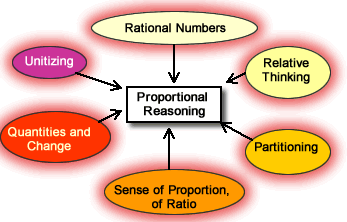No, I suppose monogamy is not natural but that argument has been made in one form or another since the beginning of Western Civilization. Evolutionary research is drawing the question into the limelight once again and, with the weakening Judeo-Christian tradition of the contemporary West, the value of monogamy is apt to be treated with degree of critique unseen since the rise of the church in the third century AD. At root of the renewed interest in various forms of polygamy, including serial monogamy, lies a confusion between behavior that is natural and that which is beneficial.
The Guardian reporting on the evolutionary basis of monogamy is typical.
The mystery of monogamy: scientists claim to have the answer
Next, they used simulated evolution from 75m years ago to modern day. As the simulation ran, it showed how monogamy rose and fell for different species. Having run the program millions of times, they found that the evolution of monogamy in primates was preceded by one thing only: infanticide by males.
"You do not get monogamy unless you already have infanticide, and you do not get a switch to paternal care if you don't already have monogamy," said Opie, in research published in the journal Proceedings of the National Academy of Sciences.
Opie says the findings are linked to increases in brain size. In primates, brain size expanded as social groups grew larger, which meant that mothers were infertile for longer and more males were close by. For males, infanticide was a strategy to make females fertile again.
"Monogamy is only one strategy for dealing with infanticide. But it's not the only one," said Opie. "Chimps mate with all the males in their group to confuse paternity so males won't attack. But in others, humans included, males stick with females to protect them." Once a species becomes monogamous, paternal care and other behaviours evolve that help offspring to thrive, he said.
A little more straight forward is this article in Slate where the authors claim we just don't know why homo sapiens are, at best, monogamou-ish.
Seeing as we're neither one thing nor the other, scientists have been left to speculate on how our ancestors might have done their thing. Were they like gorillas, where most males suffered while one dude enjoyed the chance to spread his seed? Or more like chimpanzees—sleeping around, with males competing for multiple partners? Or is there another possibility, like the one championed by Christopher Ryan and Cacilda Jethá in their best-selling and soundly criticized paean to free love, Sex at Dawn? According to that book's authors, our ancestors did as bonobos do: They had rampant sex without much bickering.
Such discussions tend to dead-end quickly, though, since we just don't know for sure. Our most recent relatives in common with these other primates lived about 6 million years ago. (I suppose if bonobos could be anthropologists, one of them might write a book on whether bonobo sexuality evolved from something humanlike.) "What this really is," says Barash, "is a Rorschach test for the people asking the question."
Scientists and other technicians excel when offering theories about how monogamy, or anything else for that matter, came about but the question remains unasked, "How is the development significant?" Take for example the large frontal lobe of homo sapiens. It developed to allow greater group size, tool making and a variety of other practical reasons related to survival in the African savanna. Once we began walking the earth with this frontal lobe, however, we found many other uses for it beyond its initial design: philosophy, drama, domesticating livestock, building the Hoover Dam, going to the moon, and so on and so forth. There is a difference between cause and consequence, between the origin of something and its value. Unintended consequences are as likely to manifest as a net positive as a negative.
 |
| Zeus and Hera: trouble always followed the "ish" in monogam-ish. |
Still our frontal lobe is not overly efficient. Monogamy is a long-term commitment so there are good odds that we will all be tempted to reason, at one time or another that if monogamy is an adaptation rather than a natural state, then perhaps I'd be happier if I indulged the (natural) human desire to wander. As I
suggested earlier in the week, the immediate desire for happiness is frequently in conflict with the more long-term commitment to meaning. It took one day for the Guardian to follow up with another article,
So monogamy works for some animals. Doesn't mean it's 'natural' for us. The author concludes,
We need to get beyond our cultural obsession with what is "natural" when it comes to human relationships, and the common assumption that this equates to what is "normal" and also to what is "good". Instead we should turn our attention to the diversity of ways in which humans connect, and ask ethical questions about how we relate to each other in a world of ever-changing relationship rules.
Setting aside the dualism assumed by the author (everything we experience in a relationship is routed through our brain which, last time I checked, is part of nature and therefore natural), lets assume her instinct is correct and monogamy is a construct of relative value. Does a stoic understanding of the human experience have anything to add to this assessment of sex, commitment, and the value of monogamy? Of course it is natural for males and females alike to seek to spread their genetic bets as widely as possible, but regardless of it adaptive origins, does monogamy provide a private or public good?
If we begin with the assumption that polyamorous or monagamous-ish relationships are the more natural state of human affairs, we have not yet demonstrated that polyamory is good for either the individual or society. Our lives are awash in unnatural practices which we would loath to surrender: vaccinations, electric lights, agriculture, centralized national government, coffee shipped thousands of miles to my west Wisconsin kitchen, and pretty much everything else that fills our days. They are not natural. Only eating what I can kill and the wife could gather would be natural but, in our case at least, would result in starvation. Our cultural advancements have their critics but without them, however, the human population would crash and modern civilization would cease. A more natural state is not always to be preferred. As Thomas Hobbes observed, life in a state of nature is "solitary, poor, nasty, brutish, and short." We seem to value society, wealth, ease, civility and length of years. Each of which is a rather recent innovation in evolutionary terms.
There are
academic paper or, if you are in a hurry, this shorter
synopsis which give details about the benefits of monogamy. At least in a state of civilization there would seem to be great benefits to monogamy, or at least monogam-ishness. Within a stoic frame of reference, however, an individual commitment to monogamy contributes to each person's fulfillment, not because of the power of romantic love or any inherent joy of matrimony. The practical benefits would, I suggest, teach us that the practice tells us something about the nature of the universe. If a cell phone works, it's workings are congruent with the laws of physics. If a relationship type "works" it is also congruent with the nature of human thriving. How do we connect the experience of monogamy with traditional stoic values?
 |
| Xanthippe, the wife of Socrates, empties a chamber pot on his head. |
- Monogamy as Temperance:
Searching after a silver bullet is a hallmark of human behavior whether in investment or relationships. The grass appears to be greener on the other side so there is an impulse to sell our stocks when they are low, and buy them when they are high, to leave one job thinking another will be more satisfying, to add sexual partner to another thinking that in the endorphin high of eros we will find something that we were earlier missing. Embracing monogamy is a practice that trains us for every other area of our lives. The hunger of dissatisfaction is natural but but its inability to be satisfied causes it to become destructive after certain needs are met. The cure for animal desire is human assessment. The new is never as good as we imagine. Jumping from one bed to another undermines joy as quickly as jumping from one stock to another undermines a retirement fund. Yes, like a bad stock, there is a time to leave a relationship but the decision is best made not with primal emotions but human rationale. Monogamy is, in brief, an exercise in temperance as applied to sexual relationships. Temperance allows us to enjoy a thing while maintaining perspective on the larger scope of life.
- Monogamy is training for Freedom:
Monogamy requires fidelity and fidelity is practice in the restraint of passions. In the midst of options keeping your word to a spouse as both of you both age and change is a practice in interpersonal fidelity that has applications in every other relationship. Passions, whether they be love, hate, greed, or any other undermine our readiness to keep faith to others or, more importantly, with ourselves. If our passions can dominate us than we are not free but rather under a yoke to our primitive brain, a slave to the apes from which we emerged. If we are not free to keep faith with ourselves, that is with our conscience, than we are miserable slaves indeed and the ex-spouse deserves the house, car, and the dog; perhaps, then, we'll at least learn something.
- Monogamy breeds Justice:Monogamy breeds justice as the social benefits of the practice ripple through society (see the study on social benefits above) but on a personal level we are trained to listen to our spouses express their own needs and emotions even when they contradict the needs and emotions we would project upon them. Having been trained to listen and correct our misconceptions we are better attuned to listen to every other manifestation of the universe that presents itself. Justice is the faithful exercise of right relationship. Monogamy is a graduate education in relationship and as we learn to get monogamy right we garner the skills to treat every other thing, our boss, the neighbor's dog, the soil beneath our feet, as they deserve rather than as we desire.
Monogamy is hard but if it were easy it would be of less personal value as a training for other areas of life. It would not be totally unfair, if not completely accurate, to describe it as a social construct, but it is a well entrenched construct with tangible social benefits. A culture that is monogamous-ish will out perform one that is not. Evolution, at least in humans living in sophisticated cultures, favors monogamy. Though monogamy is not yet instinctual, we are capable of monogamy and the adaptation provides social goods and personal benefits for those who would embrace it. It is one manifestation of the virtues and can be an aspect of the well-lived life.
The value culture places on monogamy is, with the retreat of Judah's god and his commandments, uncertain. Our animal impulses would love to be free of its constraints, offering promises of leisurely pleasure that does not restrain our future freedom. That future freedom from commitment comes at the cost of the opportunity to be trained in personal restraint which delivers the abiding joy found in human freedom from the passions. Whatever its future prospects monogamy was and is of personal benefit and a natural consequence of valuing the ancient virtues of justice, temperance, prudence, and, as anyone who has had to tell a spouse about that thing they spent the grocery money on can attest, courage. The contemporary stoic would continue benefit from sitting for monogamy's lessons.



_frontispiece.jpg/200px-Epicteti_Enchiridion_Latinis_versibus_adumbratum_(Oxford_1715)_frontispiece.jpg)
































